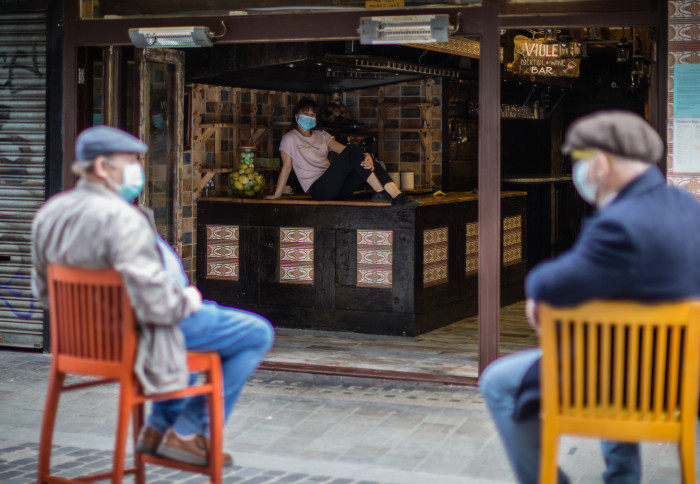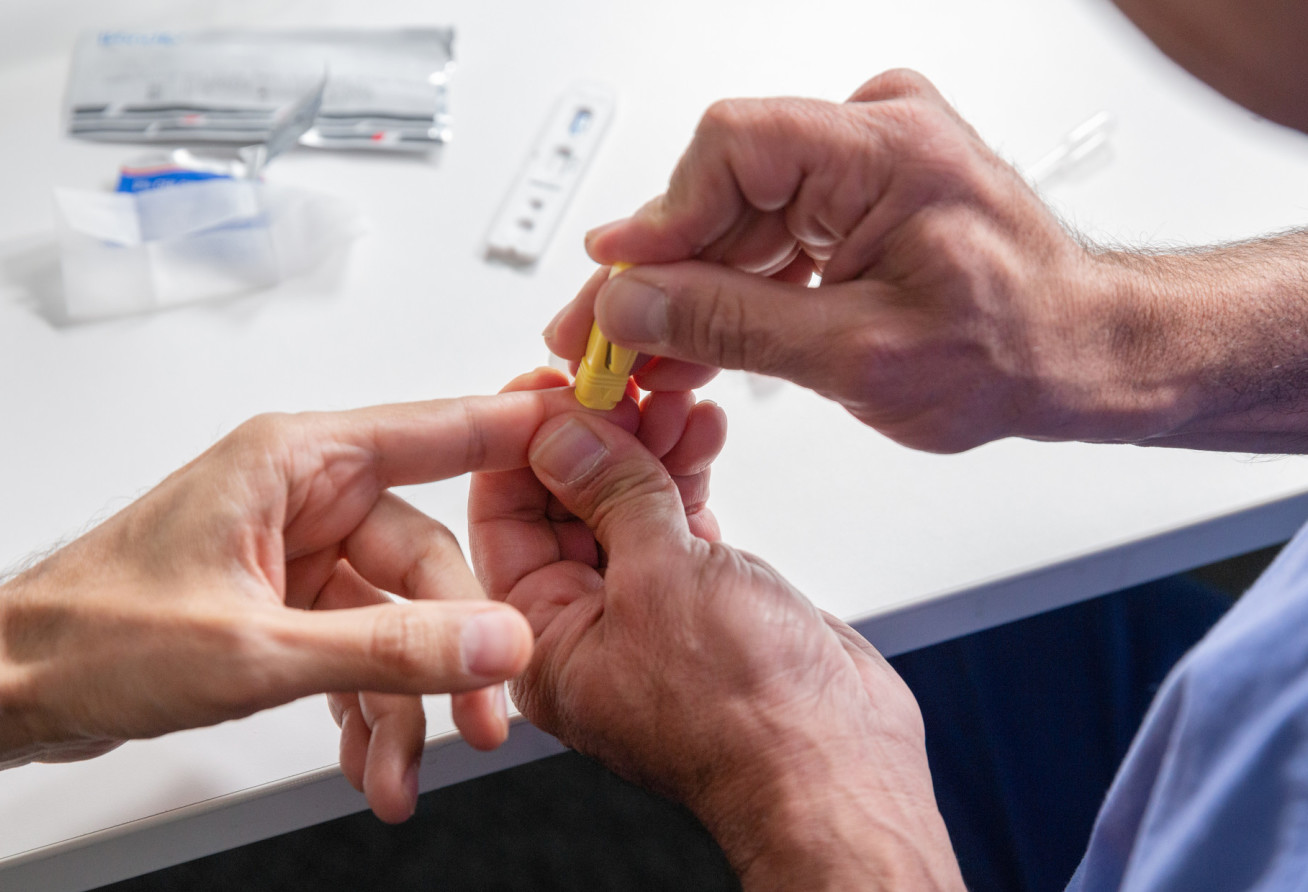
Global S&T Development Trend Analysis Platform of Resources and Environment
| Million-pound gift to drive better COVID-19 contact tracing strategies | |
| admin | |
| 2020-08-13 | |
| 发布年 | 2020 |
| 语种 | 英语 |
| 国家 | 英国 |
| 领域 | 资源环境 |
| 正文(英文) | 

A £1 million donation will fund a new contact tracing pilot and diagnostics to help find effective strategies for controlling COVID-19 transmission. The gift from the Huo Family Foundation will support the work of Professor Paul Elliott, director of the REal-time Assessment of Community Transmission (REACT) Programme. 
The news comes as policymakers around the world, including in the UK, seek to develop more effective contact tracing technology and techniques. The REACT Programme, led by a world-class team of Imperial scientists, clinicians and researchers, alongside colleagues at Imperial College Healthcare NHS Trust and Ipsos MORI, involves the testing of swabs taken at home monthly by over 100,000 people in England to determine the prevalence of COVID-19 infection in the community. It is also assessing the feasibility of mass home antibody testing which could indicate how many people have been infected and recovered since the outbreak began. This month the programme published its second report, which revealed that infection rates in England continued to decline between 19 June and 8 July, despite easing of lockdown measures. 81% of participants who tested positive for coronavirus were shown to have not experienced any symptoms in the seven days prior, or on the day of the swab test. Managing clusters
The £1 million gift will allow Professor Paul Elliott and the REACT team to convene a cross-disciplinary team of epidemiologists, statisticians, public health specialists, clinicians, virologists and data scientists to design and conduct studies of contact tracing and transmission. The research will focus on expanded testing at Imperial which aims to maintain a safe environment as students and staff return to campus. Those who test positive will be followed up intensively to identify likely source and spread events and locations. The study will identify the contribution of different testing and tracing methods to limiting transmission, and which strategies are effective and deliverable at a local level for educational and work settings. The work will also consolidate the secure holding and management of the large database of participants among the general public who are taking part in COVID-19 research programmes and have agreed to be contacted for future research (e.g. diagnostics or prognostic markers) and for follow-up of their health records. Professor Paul Elliott explained: “In the global fight against COVID-19, it is likely that governments end up with relative control of the virus at a national or regional level, but with an ongoing risk of localised clusters of infection that, left unchecked, could rapidly develop into major outbreaks. University campuses are a key setting that could contribute to extensive spread or, with appropriate interventions, to enhanced control. “To manage this risk, it is important to be able to identify emerging COVID-19 transmission hotspots on campus through regular testing and to understand how to intervene to successfully control new clusters of infections, for example through contact tracing and early treatment.” Essential insightsProfessor Alice Gast, President of Imperial College London, said: “Imperial’s vital work at the forefront of the global fight against COVID-19 is made possible thanks to the generous support of philanthropists like Yan Huo. This research will provide essential insights into the prevalence and spread of the virus among communities, including on our campuses, informing policy in the UK and across the world.” Yan Huo, founder of The Huo Family Foundation said: "It is essential we do all we can to tackle the spread of COVID-19 which continues to affect millions of lives across the world. “We are pleased to support the vital contact tracing technology development work of Professor Paul Elliott and the REACT Programme. “We appreciate the urgent nature of this research and are supporting several projects in this field.” This donation builds on a wide groundswell of support from alumni and donors, which is helping to drive critical coronavirus research across the College. Imperial’s COVID-19 Response Fund, launched in March, provides a means for donors to contribute to a pooled fund that will give the College the flexibility to quickly support high-impact projects in the university’s efforts to tackle COVID-19. Recently Imperial also launched the £1 million Community Jameel Imperial College COVID-19 Excellence Fund that provides larger grants to help scale-up projects.
|
| URL | 查看原文 |
| 来源平台 | Imperial College London |
| 文献类型 | 新闻 |
| 条目标识符 | http://119.78.100.173/C666/handle/2XK7JSWQ/287515 |
| 专题 | 资源环境科学 |
| 推荐引用方式 GB/T 7714 | admin. Million-pound gift to drive better COVID-19 contact tracing strategies. 2020. |
| 条目包含的文件 | 条目无相关文件。 | |||||
| 个性服务 |
| 推荐该条目 |
| 保存到收藏夹 |
| 查看访问统计 |
| 导出为Endnote文件 |
| 谷歌学术 |
| 谷歌学术中相似的文章 |
| [admin]的文章 |
| 百度学术 |
| 百度学术中相似的文章 |
| [admin]的文章 |
| 必应学术 |
| 必应学术中相似的文章 |
| [admin]的文章 |
| 相关权益政策 |
| 暂无数据 |
| 收藏/分享 |
除非特别说明,本系统中所有内容都受版权保护,并保留所有权利。
修改评论